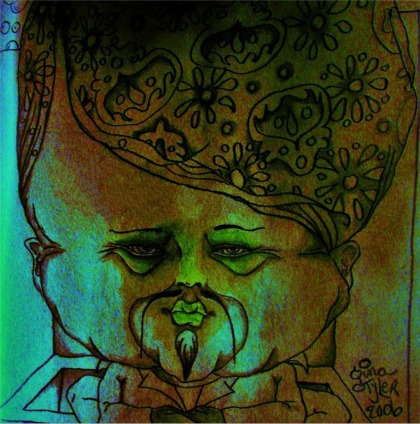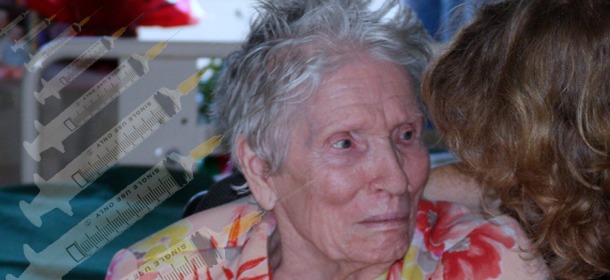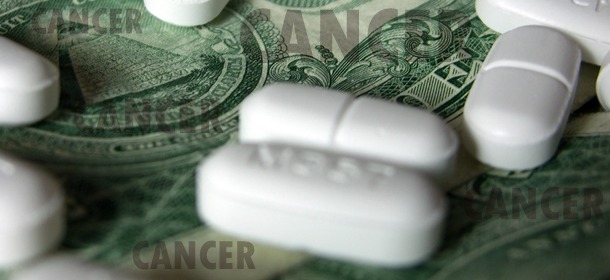Conventional Med
Anecdotal Evidence: The Basis of All Knowledge
Whenever someone expresses an opinion based on personal experience, especially in the field of medicine—and that opinion varies from the view held by the listener—the usual response nowadays is, “Well, that’s just anecdotal. The science doesn’t agree with you.” That statement sounds so convincing. After all, we can and do make mistakes in our observations. We make connections that aren’t there.
But, does that make anecdotal evidence invalid? And are science-based answers necessarily correct? In a word, No.
Doctors effectively and necessarily use anecdotal evidence every day. These bastions of evidence-based medicine actually base most of their practices on anecdotes. Sound crazy? Consider:
- If you tell your doctor that a drug he’s just given you is causing a terrible headache, the chances are that you’ll be believed, and your treatment will be changed. He’s basing that decision on the anecdotal evidence you’ve just given.
- Doctors tell each other stories of experiences during surgeries. If one doctor tries a new technique in surgery, it is almost never tested. Other doctors simply try it themselves if it sounds interesting. They’re basing those decisions on nothing but anecdotal evidence.
So, what is scientific evidence that makes it so important that one’s personal experience can simply be ignored, tossed aside as if it holds no value? In this age of science for sale—science co-opted by multinational corporations in virtually every arena—it has come to mean less and less in terms of providing real information on which to base health decisions.
Science in Medicine
In point of fact, anecdotal evidence is routinely provided in medical journals. They frequently produce articles of individual cases. If such anecdotal evidence weren’t of value, then why are such stories printed? It’s because they are evidence. Each case matters. Each case counts. The anecdotal evidence is of value.
Science can be a wonderful tool for gaining knowledge. It is not, though, the be-all and end-all of knowledge—especially in terms of health. Medical science studies tend to be one of two types:
- The blinded placebo-controlled study, with variations on blinding and placebo-control.
- The population-based epidemiological study.
Both are useful, but neither tells the whole tale. The blinded, placebo-controlled study attempts to eliminate anything the researchers deem to be irrelevant or likely to skew the results. That, though, narrows the focus to such a degree that it cannot account for all the variables that affect each individual person who might be subjected to the product, usually a drug, under investigation.
Population-based studies provide information about what’s true across enormous groups of people. They provide averages and ranges. However, they tell us nothing whatsoever about each individual.
Ultimately, the only evidence that truly matters is anecdotal: what a treatment does to the individual. It matters not if some nonexistent average person might benefit from it. That has little bearing on the individual’s reaction. It matters not if a large proportion of people tolerate a treatment well, if the individual is made ill by it.
The only medical evidence that truly counts for each person is anecdotal.
Modes of Learning
Does this imply that there’s no place for science? Of course not! Science is a fabulous tool for gaining knowledge. It simply isn’t the only one. Logic, which is distinct from science, is obviously of great value in coming to conclusions about what is and is not real. Einstein himself used logic in his famous thought experiments. It wasn’t until later that they were demonstrated to be true.
Unfortunately, those who promote science in medicine to the exclusion of all other means of learning miss the most significant fact of all: Humans are individuals, complex beyond comprehension. Life itself is something more than the interaction of chemicals and the laws of Newtonian physics.
The nature of life goes beyond chemistry and physics. Life exists because of something that doesn’t exist in anything inanimate: the struggle to survive and reproduce. Life has volition, and that makes it complex beyond the ability of any science experiment to predict with surety what will happen when any treatment is given to any individual. Yes, science can predict fairly accurately what will happen, on average, in large groups—but not what happens with each person within that group. Yet, medicine must treat the individual. That is obvious.
And that is why so-called evidence-based medicine fails. It ignores the most salient point of all: No person is average.
Anecdotal evidence combined with logic is how most knowledge was developed throughout most of humanity’s existence. How best to grow food was generally figured out by seeing what worked, exchanging information, and using logic. If it hadn’t been effective, we wouldn’t be here today. We know there are seasons because of observations. No studies needed to be done to discover that.
We learned that certain herbs had beneficial effects by trying them and passing on the information of what resulted: pure anecdotal evidence. But that’s how we know, for example, that milk thistle is good for the liver and hawthorn is good for the heart. No studies needed to be done. We learned through experience and anecdote.
Now, though, anecdotal evidence is deemed inadequate. It isn’t suggested that the methods of science can add to our knowledge. Instead, we’re told that the only acceptable means for learning is science, in spite of its obvious limitations when applied to individual people.
Reason for the Science-Only Focus
Why does this bull-headed blindness about science exist? Why is it so often used to bully people, especially those who espouse medical views that run counter to what’s accepted by modern mainstream medicine? The reason is really quite simple and crass: money.
Science has become the tool of corporations to get what they want. The more money they have, the better they’re able to control the outcomes. The better they control the outcomes, the more readily they can force their products on the masses of people. This alone should clarify that science is not the perfect tool so often presented.
The truth of this is readily apparent in medical science:
- Those studies that have so-called negative results, meaning they conclude that the hypothesis is incorrect, are rarely published, in spite of the fact that such information is every bit as valuable as the results from a study that confirm the hypothesis.
- Studies that don’t get the results the sponsoring corporation wants are almost never published.
- Studies are routinely twisted with statistics designed to provide skewed results.
- When results are not what was desired, the conclusions are often spun to give the impression they were.
- Even the goals designed into studies are often not what we need to learn, such as investigating whether a drug lowers cholesterol but not whether it reduces heart attacks.
All these tricks are used to skew science, making it a tool of the sponsoring corporations. The stranglehold of these corporations goes so deep that studies sponsored by government agencies are often every bit as corrupted as those produced directly for corporations, because their people are infiltrated within the agencies, and their money often controls what the agencies choose to support.
It all comes down to money. Science, a wonderful tool, though not a perfect one, is held up as the only way we can get to the truth. It simply isn’t the case. Nonetheless, it’s been crammed into the public consciousness that nothing is to be believed unless it’s been proven by science.
The real joke here, though, is that the statement, “proven by science”, contradicts the very nature of science. Nothing is ever treated as absolute and true. That is, nothing is absolutely proven in science. Especially in the arena of medicine, the best that can be stated is that the preponderance of scientific evidence shows that something is probably true. That’s all. And it never says that something is true for any individual person.
Anecdotal evidence is meaningful. To ignore it is to court the dictatorship of science taken out of its moorings and twisted to the purposes of corporations with no interest beyond profits. Anecdotal evidence is the only sort that holds any meaning in terms of medical treatment for each individual. Anecdotal evidence is the basis of all knowledge. Science has no place to start without anecdotes and reason. It’s a tool of those two methods of learning, not their replacement.
Tagged anecdotal evidence, anecdotal evidence knowledge, anecdotal evidence learning, anecdotal evidence logic, anecdotal evidence reason, anecdotal evidence science, conventional medicine, modern medicine, pharmaceutical drugs, pharmaceuticals, science

















Pingback: NeuroLogica Blog » Alternative Medicine’s Attack on Science
Pingback: The Plural of Anecdote IS Data! | Gaia HealthGaia Health